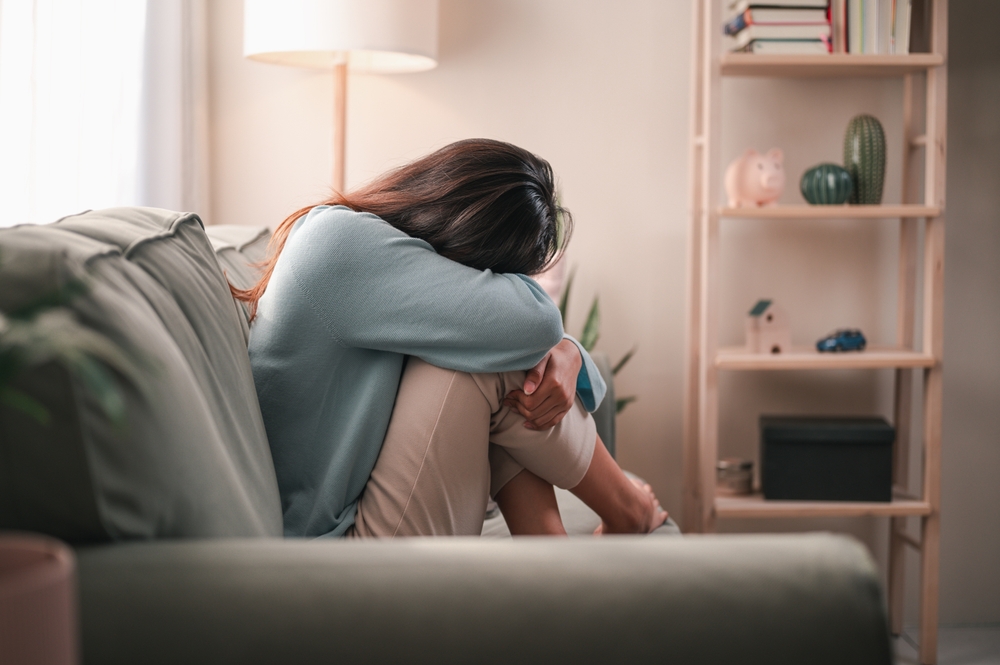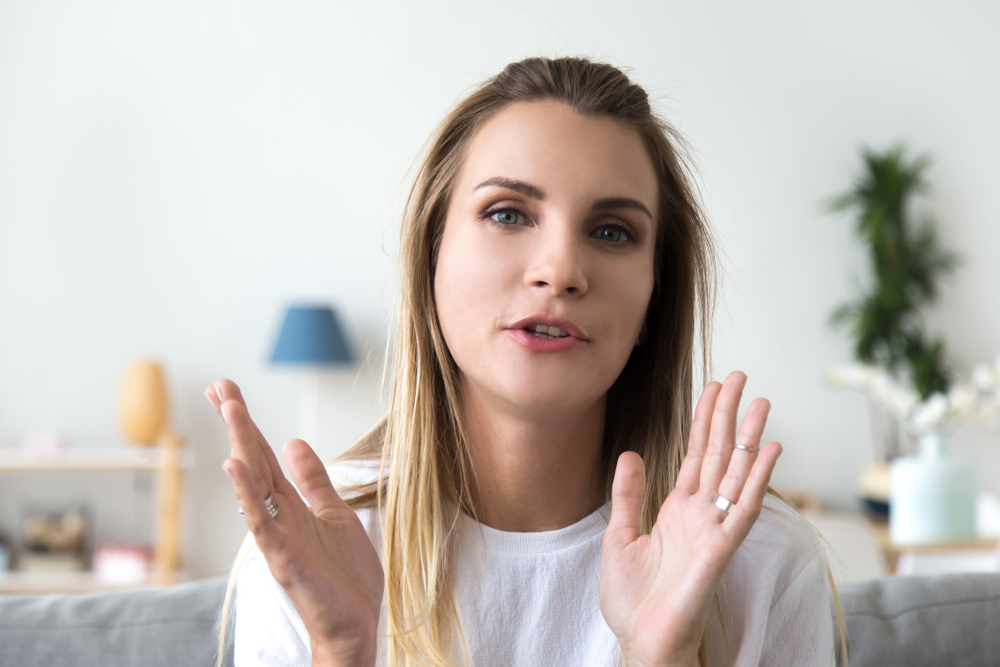Everyone says friendship should feel easy. But for some people, it’s never felt easy at all—it’s felt complicated, disappointing, or emotionally draining. If you’re the one who often ends up ghosted, left out, or wondering what you did wrong, it’s not just bad luck—and it’s not always their fault either. These behaviors aren’t obvious, but they run deep. Most are rooted in old patterns, fear, or survival instincts, not malice. But if you see yourself here, it’s worth exploring. Because friendship isn’t just something nice to have—it’s something your emotional well-being needs.
1. You Try To Be Who You Think People Want

If your friendships feel performative, it’s likely because you’ve never felt emotionally safe enough to be fully yourself. You mold your opinions, interests, and energy to match the people around you, hoping it will make you more likable. Research published by the American Psychological Association confirms that authentic, stable friendships are foundational to emotional well-being—and pretending to be someone else chips away at that stability over time.
It’s exhausting to constantly shape-shift. You might think you’re doing it to fit in, but others can feel the inauthenticity, even if they can’t name it. And the more you hide who you really are, the more disconnected and misunderstood you’ll feel. Real friendships require you—not your mask.
2. You Don’t Let Anyone See The Real You

You might be easy to talk to, generous, and funny—but you never let your guard down. You rarely share personal challenges, strong opinions, or anything that could be emotionally vulnerable. On the surface, you seem fine, but under the surface, people don’t feel connected to you.
It’s hard to bond with someone who’s emotionally opaque. You don’t have to overshare or dump your trauma, but you do need to let people in. Without some glimpse of your inner world, even the kindest people will drift away. Intimacy isn’t possible without visibility.
3. You Confuse Friendliness With Friendship

You’re warm, chatty, and great at small talk—but you rarely move beyond surface-level interactions. You have lots of acquaintances but struggle to build true emotional closeness. You stay busy and social, but underneath, you feel a gnawing sense of loneliness.
The American Psychological Association notes that mutual emotional investment is what separates real friendships from casual encounters. Being friendly is a great start—but without deeper connection, it won’t fill the void. If you want real friendships, you have to go below the surface. That means being emotionally available, not just socially present.
4. Your Fear Stops You From Reaching Out

You convince yourself they’re busy, uninterested, or already have enough friends. So instead of texting, calling, or suggesting a hangout, you retreat and wait. But your silence gets interpreted as disinterest—and the gap grows wider.
Friendship needs initiation, not just receptivity. When you don’t take the first step, people stop assuming you care. That emotional distance often becomes a self-fulfilling prophecy. You’re not being rejected—you’re just not being seen.
5. You Overinvest Way Too Fast

You go all-in quickly—spilling your soul, making big plans, or treating a new friend like a lifelong confidante. Then, when they don’t match your intensity, you feel hurt or abandoned. Your heart was in it, but your pace was too much too soon.
The Mayo Clinic confirms that healthy friendships develop gradually through shared experiences and mutual trust. Rushing the process often leads to burnout or misunderstanding. Just because you click doesn’t mean they’ve earned instant emotional access. Slow trust is often the strongest kind.
6. You See Conflict As Rejection

You interpret one disagreement as proof that the friendship is falling apart. Instead of addressing it, you shut down, ghost, or spiral into self-doubt. You treat conflict like a red flag rather than a normal part of human connection.
But real friendships aren’t conflict-free—they’re repairable. What matters most is how you respond when something feels off. If you assume the worst and disappear, the friendship never has a chance to deepen. Emotional maturity means staying present even when things get messy.
7. You Treat Friendships Like A Transactional Ledger

You keep score: who texted last, who reached out first, who gave more. It’s not bitterness—it’s your way of gauging emotional safety. But according to Verywell Mind, transactional relationships undermine authentic emotional connection and lead to imbalance and distrust.
People feel when they’re being measured. And when love feels like a performance, it loses its warmth. True friendship isn’t about matching effort moment-for-moment—it’s about trust in the long game. Let go of the tally and tune into the feeling.
8. You’ve Outgrown Old Friendship Patterns

The party nights, drama cycles, or codependent friendships no longer resonate—but you haven’t found your new people yet. You’re in a transition, and it’s lonely. You miss belonging, but not those dynamics.
You’re becoming someone new, and that means seeking out different energy. The right friendships for this chapter won’t look like the last. But you won’t find them if you keep chasing old patterns. Let growth be your filter.
9. You Expect People To Know What You Need

You crave emotional support—but expect others to just know when you’re down or overwhelmed. You rarely express your needs, assuming real friends should just “get it.” But when they don’t show up the way you hoped, you feel hurt or resentful.
Friendship isn’t telepathy. It’s communication. And expecting people to read your mind sets everyone up to fail. Asking for what you need isn’t needy—it’s healthy.
10. You Pick People Who Reinforce Your Low Self-Worth

You gravitate toward people who make you feel small, ignored, or second-tier—because that’s what feels familiar. You tolerate crumbs because part of you believes that’s all you deserve. And when they disappoint you, it just reinforces that story.
But this is less about them and more about your healing. Until you believe you deserve kind, stable, mutual friendship, you’ll keep choosing people who confirm your insecurities. Change your internal script, and your social circle will shift with it.
11. You Mistake Intensity For Intimacy

You bond quickly with people who share trauma or spill their secrets fast. It feels deep—but it’s mostly adrenaline and vulnerability masquerading as connection. You confuse emotional exposure with emotional compatibility.
Real friendship is built over time, through trust, consistency, and shared experience. Without those ingredients, the intensity fizzles out. You don’t need a spark—you need substance. And that requires patience.
12. You Suppress Your Opinions To Be Liked

You avoid disagreeing, offering strong takes, or sharing anything that could make you seem “difficult.” You want to be liked, so you stay neutral. But in the process, you become forgettable.
People connect with depth, not diplomacy. Your real thoughts are your fingerprint. If you want meaningful friendships, you have to let people see—and sometimes challenge—your perspective.
13. You’ve Made Friendships A Luxury, Not A Necessity

You’ve told yourself friendship is “extra”—nice, but not vital. You prioritize work, romance, or family and leave friendships on the back burner. But the ache you feel? That’s loneliness, not lack of hustle.
Friendship isn’t optional—it’s foundational. Without it, even success feels hollow. You don’t just need people. You need people who know the real you.
14. You Carry Old Wounds Into Every New Connection

You’re still holding onto that betrayal, ghosting, or friendship breakup from years ago. And now, every new connection feels like a setup. You’re skeptical, defensive, and slow to trust—even when they’ve given you no reason to be.
That’s not coldness—it’s protection. But the same armor that shielded you is now isolating you. Healing doesn’t mean forgetting—it means trying again anyway.
15. You’ve Built A Life That Doesn’t Leave Room For Anyone

You’re efficient, independent, and incredibly capable—but also emotionally self-contained. You’ve built a life where you don’t need anyone. And now, connection feels like a burden, not a blessing.
But friendship isn’t a weakness—it’s a resource. You don’t have to carry it all alone. The right people won’t slow you down—they’ll make the journey lighter.
Natasha is a seasoned lifestyle journalist and editor based in New York City. Originally from Sydney, during a stellar two-decade career, she has reported on the latest lifestyle news and trends for major media brands including Elle and Grazia.


